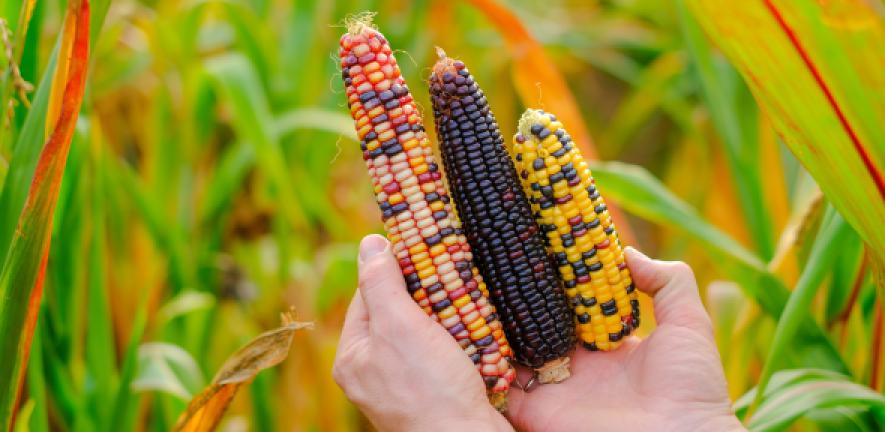
This three-day virtual study group developed by the Gateway on behalf of V-KEMS and supported by the KE Hub, aimed to bring mathematical scientists and other disciplines together to solve challenges of food insecurity and to promote sustainable practices.
Background
Food security presents the challenge of ensuring that everyone in the world has, at all times, physical and economic access to sufficient safe and nutritious food. This virtual study group focused on investigating causes of food insecurity, a global issue in which agriculture, supply chains and climate change play a key role.
Aims and Objectives
The aim of this event was to bring together those working in mathematical sciences and mathematical modelling, agriculture, healthcare and other disciplines together to solve crucial challenges in food security.
During the study group, several issues preventing global food security were explored, including the following:
Food Production
- Developing sustainable agriculture/ farming practices.
- Developing sustainable food alternatives, such as plant protein alternatives.
Food Waste
- Reducing the carbon footprint of food waste.
- Minimising food waste.
Shortages
- Climate change effect on food production.
- Shipping and supply chain network.
- Diversity of food suppliers.
The following challenges was presented to the study group:
1. Zero Waste Scotland, presented by Campbell Reid
The challenge focused on estimating food waste produced by the public sector. Before we can tackle food waste, we need to understand how much is being generated and by who. Our understanding of food waste from the public sector and hospitality is based on outdated and unrepresentative data. Can we use publicly available data sets about the size and composition of the public and hospitality sectors to build bottom-up estimates of food waste to inform where to focus our efforts to reduce food waste?
2. Modelling optimal foliar exposure of crop protection products, presented by Anke Buchholz
This challenge looked into Foliar plant spray, which involves applying crop protection products (CPPs) directly to a plant's leaves as opposed to putting it in the soil. Foliar spray quality (droplet size distribution, spray volume, spatial distance and number of droplets and concentration of the CPP) can have a huge impact on the performance of the CPP and subsequently the growth, yield and quality of the crop. The question “which spray quality leads to the most efficient CPP performance” is yet to be addressed.
3. LettUs Grow, presented by Adam Waterman
This challenge looked at a vertical farm or CEA HVAC system. The aim is to maintain target temperature, relative humidity and vapor pressure deficit within the chamber while using the minimum amount of energy. All of the target factors affect each other so changing one changes the others. Also, methods of control affect multiple target factors in different ways. This leads to a complex multivariate system with multiple target parameters and multiple interlinked control methods.
A summary report is published below, which highlights the discussions that took place at the study group and the initial findings.
Registration
Registrations are now closed.

